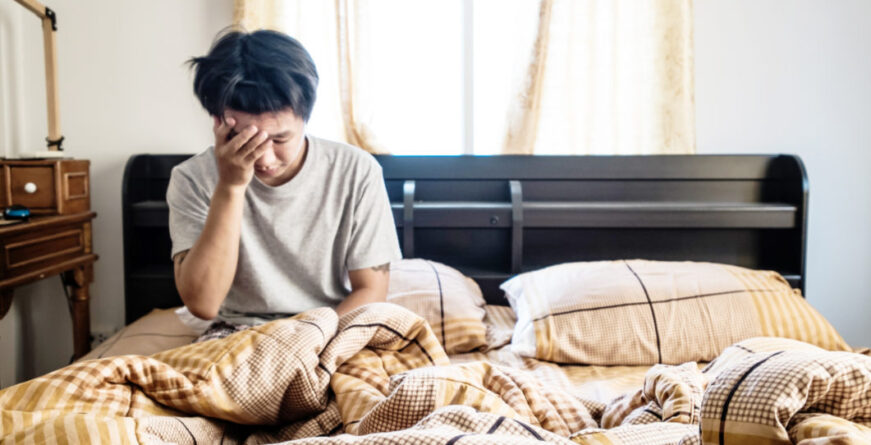
The causes of low libido, or low sex drive, are varied. Low libido may be caused by one main factor or by a combination of several factors. So the treatment involves evaluating all of these factors and treating them as appropriate. These factors include:
- Hormonal Abnormalities
- Central (Brain) Factors
- Erection or Ejaculation Issues
- Psychological/Relationship Issues
Hormonal abnormalities
Low Available Testosterone
Testosterone levels have a significant and central role in libido for both men and women. In fact, most men with a low testosterone level will suffer from a low libido. This effect seems to be magnified over time, as libido seems to decrease with age more than can be explained by the natural decreases in testosterone levels that come with aging.
High Prolactin
What is Prolactin?
Prolactin is a hormone made by your pituitary gland. The pituitary gland can develop a prolactinoma which is a non-cancerous growth. Fortunately, the pituitary adenoma can usually be treated with medication that suppresses and sometimes ultimately destroys the growth. If it cannot be treated medically, it is usually surgically removed.
Low DHEA-S
What is DHEA-S?
Lower DHEA-S levels are found in people with Alzheimer’s disease, heart disease, depression, diabetes, inflammation, immune disorders, and osteoporosis. Once you and your physician decide that DHEA-S supplementation is appropriate, DHEA-S is simply taken as a daily pill.
Central Brain Factors
Serotonin
Increased serotonin levels often decreases libido. Depression itself can, of course, have a negative effect on libido. However, the SSRIs, even while improving depression do not improve libido.
If a man needs to be on an SSRI to treat his depression, several factors may be considered to diminish their impact on libido.
First, usually he can lessen the effect on libido by lowering the dosage. Often, over time, the dosage used to treat depression can be decreased.
Second, every man’s brain chemistry is unique. Various SSRIs not only affect men differently, but also may affect their libidos differently.
Third, an additional antidepressant (such as bupropion) may be added, which may in and of itself increase libido, but may also make it possible to treat the depression with a lower dosage of a SSRI.
Dopamine
Increased dopamine levels in the brain correlate to an increased libido. One can increase brain dopamine levels by either increasing the actual levels, through an oral medication, or by preventing the depletion of dopamine by changing behavior.
Depression
Many men will need to be on a medication to treat depression. Clearly, depression has a significant negative effect on men’s lives, and can be life threatening. Depression also has a significantly negative effect on libido.
Erection/Ejaculation Issues
Whenever a man gives a history of a decreased libido, it is important to ask whether he thinks it is because of the way he is functioning sexually. If there are some sexual function issues, these should be addressed first, to see if libido returns once they have been addressed. (Of course all potential medical issues, whether medications or hormonal, need to be diagnosed and, if found, addressed simultaneously.)
Many men will regain their interest in sex, once they are able to perform in the manner they would like. However, some men do not regain their interest in sex, and other factors must then be considered and other approaches to the problem must be addressed.
Many men have a tendency to pull away from physical intimacy of all kinds if they are not able to get and maintain adequate erections for intercourse. Consciously, or subconsciously, they are afraid that any intimacy will lead to the desire or expectation in their partner for intercourse, and they do not want to disappoint their partner or themselves. Also, many women (particularly) may take a man’s erection issues as a sign of waning interest in them, and thus feel doubly insecure when the man stops all sorts of intimacy. For many women, physical intimacy is even more important than intercourse, and when men pull away because of performance fears, their female partners are particularly angry, depressed, and lonely. It is crucial that men with erection/ejaculation/libido issues work very hard at maintaining intimate contact with their partners, while undergoing diagnosis and treatment of the problems.
Psychological and Relationship Issues
Men are traditionally depicted as wanting sex all of the time, anywhere, and no matter what is happening with relationship. This is not true! Psychological and relationship issues can have a devastating effect on a man’s interest in sex. Issues traditionally tied to low libido include:
- Anxiety, depression, fatigue
- Fear of physical relations
- Stress (work, financial, health etc.)
- Poor body image
- Low self esteem
- History of physical or sexual abuse
- Negative previous sexual experiences
- Lack of privacy or time for intimacy
- Current relationship issues (whether sexual or other)
As part of our evaluation of men with low libido, we will spend considerable time gathering information about your sexual history, current practices and interests, and your relationship. There may significant issues that are impacting your libido, some of which you are unaware of, or have been unwilling to address previously. Often, we can help you become aware of and address these issues, while also working on the contributing medical factors. If appropriate, we will help you find a personal or couples therapist who is a good match for you.
